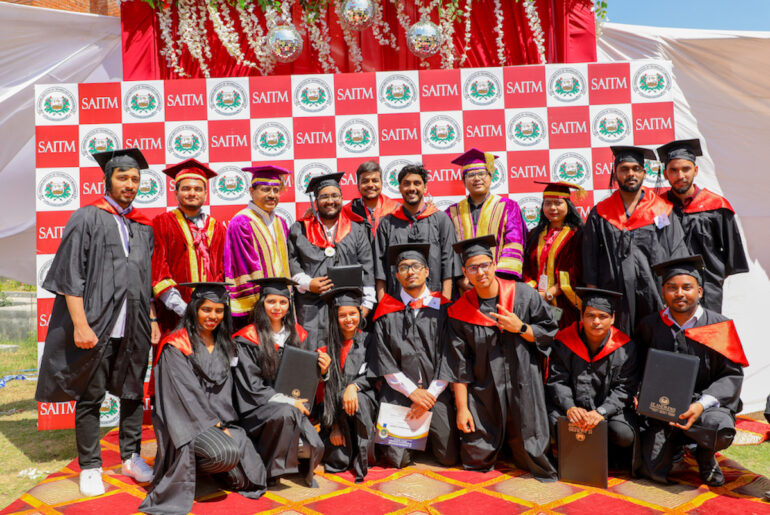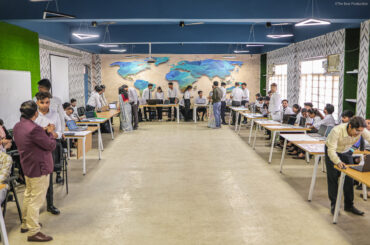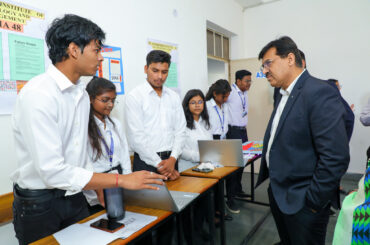Computer Science Engineering Top Colleges in India
India is home to many of the Computer Science Engineering Top Colleges in India, drawing students globally. These institutions are distinguished by their rigorous academic environments, advanced research facilities, and robust industry connections, equipping students for groundbreaking research and a dynamic job market.
They offer a variety of specializations within computer science, including artificial intelligence, machine learning, and data science, equipped with modern laboratories and experienced faculty.
Graduates from these programs often find themselves in high demand, landing prestigious positions in global tech firms or leading their own innovative startups.
The vibrant campus life and diverse student bodies further enrich the educational experience, making these colleges highly sought-after by aspiring computer science professionals.
Some of the most opted courses in India and St. Andrews college or different Engineering college or Management colleges are as follows:-
Introduction to Computer Science Engineering
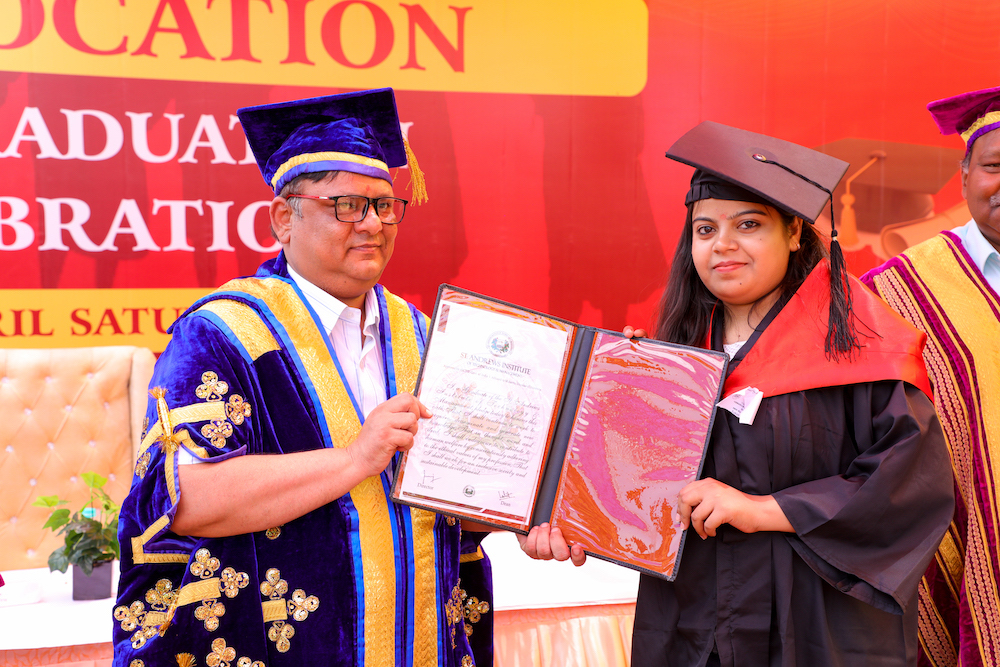
Computer Science Engineering (CSE) is a dynamic and multifaceted field that combines the principles of computer science with engineering to develop and innovate software and hardware systems. It encompasses a wide range of topics, including algorithms, programming languages, software development, computer hardware, and ai .
As technology continues to evolve at a rapid pace, CSE professionals are at the forefront of driving advancements in various industries, from information technology and telecommunications to finance and healthcare.
Students pursuing a degree in CSE gain a comprehensive understanding of computational theory, system architecture, and the design of software and hardware systems.
They learn to solve complex problems by applying mathematical and scientific principles, and they acquire skills in programming, data structures, computer networks, and cybersecurity. The curriculum often includes hands-on projects and internships, allowing students to apply theoretical knowledge to real-world scenarios and gain practical experience.
The demand for skilled computer science engineers is ever-increasing, as businesses and organizations rely on digital solutions and innovations to enhance their operations and services.
Graduates from the Computer Science Engineering Top Colleges in India can pursue diverse careers such as software developers, systems analysts, data scientists, and cybersecurity experts. Given the continual technological advancements, the field of Computer Science Engineering offers a dynamic and promising path for those enthusiastic about technology and problem-solving.
Affordable Best CSE Colleges with Quality Education

Here are some affordable and reputed colleges for Computer Science Engineering (CSE) in India that provide quality education:
Government Colleges
Indian Institutes of Technology (IITs)
Location: Various cities across India (e.g., IIT Bombay, IIT Delhi, IIT Kanpur)
Highlights: World-class faculty, excellent infrastructure, strong placement records.
Fees: Approximately ₹2-3 lakhs per year.
St. Andrews Institute of Technology & Management, Delhi NCR
Location: Delhi – NCR
Highlights: Experienced faculty, strong industry collabrations, good placement cell.
Fees: ₹98,500 per year.
National Institutes of Technology (NITs)
Location: Various cities across India (e.g., NIT Trichy, NIT Surathkal, NIT Warangal)
Highlights: Good faculty, strong industry connections, good placement records.
Fees: Approximately ₹1.5-2.5 lakhs per year.
Indian Institutes of Information Technology (IIITs)
Location: Various cities across India (e.g., IIIT Allahabad, IIIT Bangalore)
Highlights: Focused curriculum, industry collaborations, good placement records.
Fees: Approximately ₹1.8-3 lakhs per year.
Delhi Technological University (DTU)
Location: Delhi
Highlights: Strong academic curriculum, good placement records.
Fees: Approximately ₹1.9 lakhs per year.
Jadavpur University
Location: Kolkata, West Bengal
Highlights: Affordable fees, good faculty, excellent placement records.
Fees: Approximately ₹10,000-15,000 per year.
Private Colleges
Birla Institute of Technology and Science (BITS)
Location: Pilani, Goa, Hyderabad
Highlights: High academic standards, excellent faculty, strong placement records.
Fees: Approximately ₹4-5 lakhs per year.
St. Andrews Institute of Technology & Management, Delhi NCR
Location: Delhi – NCR
Highlights: Experienced faculty, strong industry collabrations, good placement cell.
Fees: ₹98,500 per year.
Vellore Institute of Technology (VIT)
Location: Vellore, Tamil Nadu
Highlights: Good infrastructure, strong industry links, good placement records.
Fees: Approximately ₹2-3 lakhs per year.
Amrita School of Engineering
Location: Coimbatore, Tamil Nadu
Highlights: Strong academic curriculum, good faculty, good placement records.
Fees: Approximately ₹2-3 lakhs per year.
Eligibility Criteria for Computer Science Engineering Colleges

The eligibility criteria for admission to Computer Science Engineering courses can vary depending on the college or university.
However, there are some common requirements that most institutions adhere to. Here are the typical eligibility criteria:
Educational Qualifications
10+2 or Equivalent: Candidates must have completed their 10+2 or equivalent examination from a recognized board.
Mandatory Subjects: Physics, Chemistry, and Mathematics are typically required subjects in 10+2.
Minimum Marks: A minimum percentage (usually around 50-60%) in the aggregate of these subjects is often required.
Entrance Exams
National Level Exams: Exams like JEE Main, JEE Advanced, and other national level engineering entrance exams.
State Level Exams: Various state-level engineering entrance exams such as MHT CET, WBJEE, KCET, etc.
University/College Specific Exams: Some universities and colleges conduct their own entrance exams like BITSAT, VITEEE, SRMJEEE, etc.
Age Limit
Some institutions may have an age limit (typically around 17-25 years).
Nationality
Indian nationals are eligible. Some institutions also have provisions for NRIs, PIOs, and international students.
Other Requirements
Medical Fitness: Some institutions might require candidates to be medically fit.
English Proficiency: Proficiency in English might be a requirement, especially for international students.
Most Popular Computer Science Engineering Entrance Exams
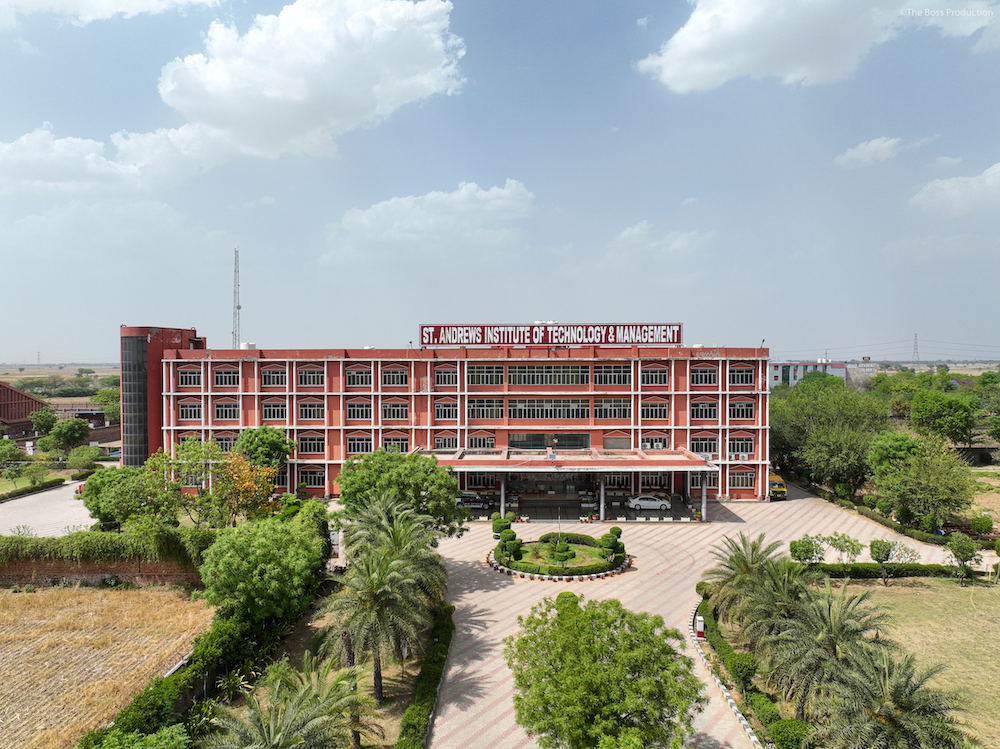
Here are some of the most popular entrance exams for Computer Science Engineering in India:
National Level Entrance Exams
JEE Main (Joint Entrance Examination Main)
Conducting Body: National Testing Agency (NTA)
Description: A national level entrance exam for admission to undergraduate engineering programs at NITs, IIITs, and other centrally funded technical institutions, as well as eligibility test for JEE Advanced.
JEE Advanced
Conducting Body: IITs
Description: To be eligible for undergraduate programs at IITs, candidates must first qualify in the JEE Main exam before they can appear for the JEE Advanced exam.
BITSAT (Birla Institute of Technology and Science Admission Test)
Conducting Body: BITS Pilani
Description: For admission to undergraduate engineering courses at BITS Pilani, Goa, and Hyderabad campuses.
VITEEE (VIT Engineering Entrance Examination)
Conducting Body: Vellore Institute of Technology (VIT)
Description: For admission to undergraduate engineering courses at VIT Vellore, Chennai, Amaravati, and Bhopal campuses.
COMEDK UGET stands for the Consortium of Medical, Engineering, and Dental Colleges of Karnataka Undergraduate Entrance Test.
Conducting Body: COMEDK
Description: For admission to undergraduate engineering courses in private colleges in Karnataka.
State Level Entrance Exams
MHT CET (Maharashtra Common Entrance Test)
Conducting Body: State Common Entrance Test Cell, Maharashtra
Description: For admission to undergraduate engineering courses in colleges in Maharashtra.
WBJEE (West Bengal Joint Entrance Examination)
Conducting Body: West Bengal Joint Entrance Examinations Board
Description: For admission to undergraduate engineering courses in colleges in West Bengal.
KCET (Karnataka Common Entrance Test)
Conducting Body: Karnataka Examinations Authority (KEA)
Description: For admission to undergraduate engineering courses in colleges in Karnataka.
AP EAMCET (Andhra Pradesh Engineering, Agriculture and Medical Common Entrance Test)
Conducting Body: Jawaharlal Nehru Technological University, Kakinada (on behalf of APSCHE)
Description: For admission to undergraduate engineering courses in colleges in Andhra Pradesh.
TS EAMCET (Telangana State Engineering, Agriculture and Medical Common Entrance Test)
Conducting Body: Jawaharlal Nehru Technological University, Hyderabad (on behalf of TSCHE)
Description: For admission to undergraduate engineering courses in colleges in Telangana.
TNEA (Tamil Nadu Engineering Admissions)
Conducting Body: Directorate of Technical Education, Tamil Nadu
Description: For admission to undergraduate engineering programs in colleges in Tamil Nadu. Note that TNEA doesn’t involve an entrance exam but is based on 10+2 marks.
Admission Process to Best Computer Science Engineering Colleges in India
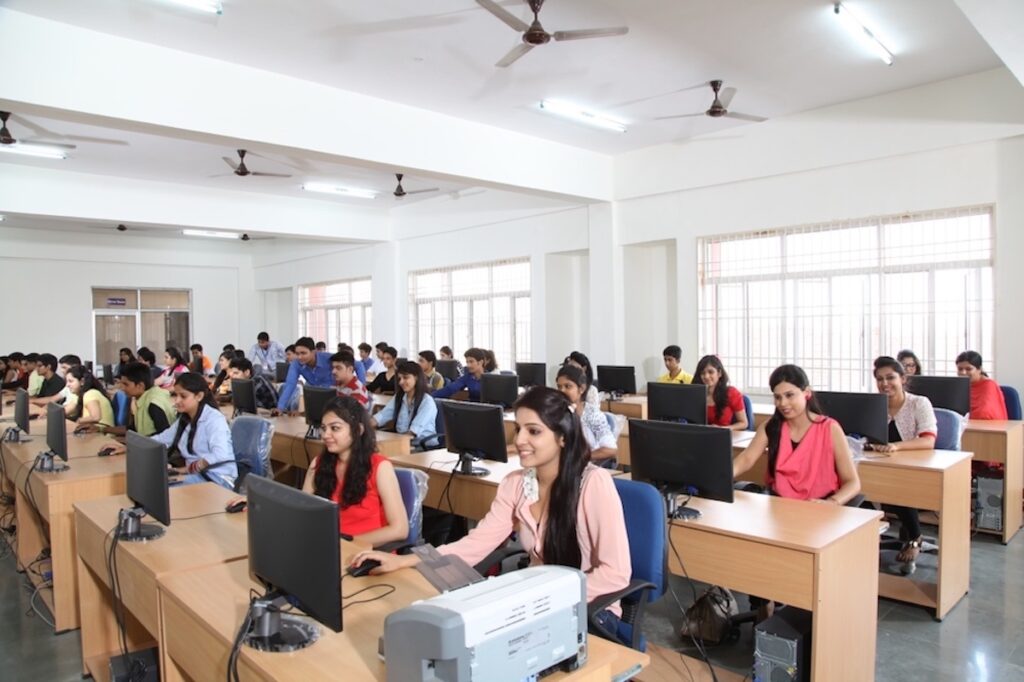
The admission process to top Computer Science Engineering colleges in India typically involves several steps.
Here is a general outline of the process:
Understanding Eligibility Criteria
Educational Qualification: Completion of 10+2 or equivalent with Physics, Chemistry, and Mathematics.
Minimum Marks: Often a minimum of 50-60% in aggregate, but this can vary by institution.
Entrance Exam Preparation
Choose the Entrance Exams: Based on the colleges you are targeting, decide which entrance exams to take (e.g., JEE Main, JEE Advanced, BITSAT, VITEEE).
Study and Preparation: Focus on the syllabus, take mock tests, and review past papers.
Application for Entrance Exams
Registration: Register for the relevant entrance exams within the specified application window.
Application Form: Fill out the application forms accurately and upload the required documents.
Payment of Fees: Pay the application fees as specified by the exam conducting body.
Taking the Entrance Exams
Admit Card: Download the admit card when it becomes available.
Exam Day: Appear for the exam on the scheduled date and time.
Results and Rank Announcement
Results: Check your results when they are announced.
Rank Card: Download your rank card or scorecard from the official website.
Counseling and Seat Allotment
Registration for Counseling: Register for the counseling process based on your entrance exam rank.
Choice Filling: Fill in your choices of colleges and courses based on your preferences and rank.
Seat Allotment: Seats are allotted based on rank, preferences, and availability. You may have to attend multiple rounds of counseling.
Provisional Admission Letter: If a seat is allotted, you will receive a provisional admission letter.
Document Verification and Admission Confirmation
Document Verification: Attend the document verification process with original documents and their photocopies. Documents typically required include:
10th and 12th mark sheets and certificates
Entrance exam rank card and admit card
Provisional admission letter
Identity proof (Aadhaar card, passport, etc.)
Passport-sized photographs
Category certificate (if applicable)
Fee Payment: Pay the admission fee to confirm your seat.
Commencement of Classes
Orientation: Attend the orientation program if the college conducts one.
Start of Academic Session: Join classes as per the academic calendar.
Fee Structure of Top Engineering Colleges

The fee structure for Computer Science Engineering (CSE) programs can vary significantly depending on the type and location of the institution.
Here’s an overview of the fee structure for different types of engineering colleges in India:
Indian Institutes of Technology (IITs)
Tuition Fees: ₹2,00,000 to ₹2,50,000 per semester.
Other Fees: Includes hostel fees, mess charges, exam fees, and other miscellaneous charges. These can add up to ₹50,000 to ₹70,000 per semester.
St. Andrews Institute of Technology & Management, Delhi NCR
Tuition Fees: ₹98,500 per year.
Other Fees: Includes hostel fees, mess charges & transportation charges.
National Institutes of Technology (NITs)
Tuition Fees: ₹1,25,000 to ₹1,80,000 per semester.
Other Fees: Additional costs for hostel, mess, and other charges can range from ₹30,000 to ₹50,000 per semester.
Birla Institute of Technology and Science (BITS) Pilani
Tuition Fees: Approximately ₹2,00,000 to ₹2,50,000 per semester.
Other Fees: Hostel and other fees can range from ₹40,000 to ₹60,000 per semester.
Vellore Institute of Technology (VIT)
Tuition Fees: ₹1,95,000 to ₹2,50,000 per year.
Other Fees: Hostel and other charges can range from ₹50,000 to ₹1,00,000 per year.
State-Level Engineering Colleges
Tuition Fees: ₹50,000 to ₹2,00,000 per year (varies by state and college).
Other Fees: Hostel and other charges can range from ₹20,000 to ₹1,00,000 per year.
Private Engineering Colleges
Tuition Fees: ₹1,00,000 to ₹4,00,000 per year.
Other Fees: Hostel and miscellaneous charges can add up to ₹50,000 to ₹1,50,000 per year.
Deemed Universities
Tuition Fees: ₹1,50,000 to ₹4,00,000 per year.
Other Fees: Hostel and other charges can range from ₹50,000 to ₹1,00,000 per year.
Importance of Computer Science in India

Computer Science is of immense importance in India due to several key reasons:
Technological Advancement
Digital Transformation: Computer Science drives the digital transformation across industries, from banking and healthcare to entertainment and agriculture.
Emerging Technologies: It fosters innovation in emerging technologies like AI, Automated Learning, Internet of Things (IoT), Blockchain, and Data Science.
Economic Growth
IT Industry: India’s IT industry, heavily rooted in Computer Science, contributes significantly to GDP growth and employment generation.
Startups and Entrepreneurship: Many startups in India are based on computer science innovations, contributing to economic dynamism and job creation.
Education and Research
Education Hub: India is a hub for technical education in Computer Science, producing skilled professionals sought globally.
Research: Indian researchers contribute to global advancements in computer science through academic and industrial research.
Employment Opportunities
Diverse Career Paths: Computer Science offers diverse career paths in application development, cybersecurity, data analytics, cloud computing, and more.
Global Demand: Indian computer science graduates are in high demand globally due to their technical proficiency and problem-solving skills.
Government Initiatives
Digital India: Government initiatives like Digital India rely heavily on computer science to improve governance and citizen services.
Skill Development: Programs like Skill India aim to enhance computer science skills among the workforce, fostering employability.
Social Impact
Education and Healthcare: Computer Science enhances education delivery through e-learning platforms and improves healthcare through telemedicine and health informatics.
Digital Inclusion: Bridging the digital divide by making technology accessible to all segments of society.
Importance of Choosing a Good CSE College
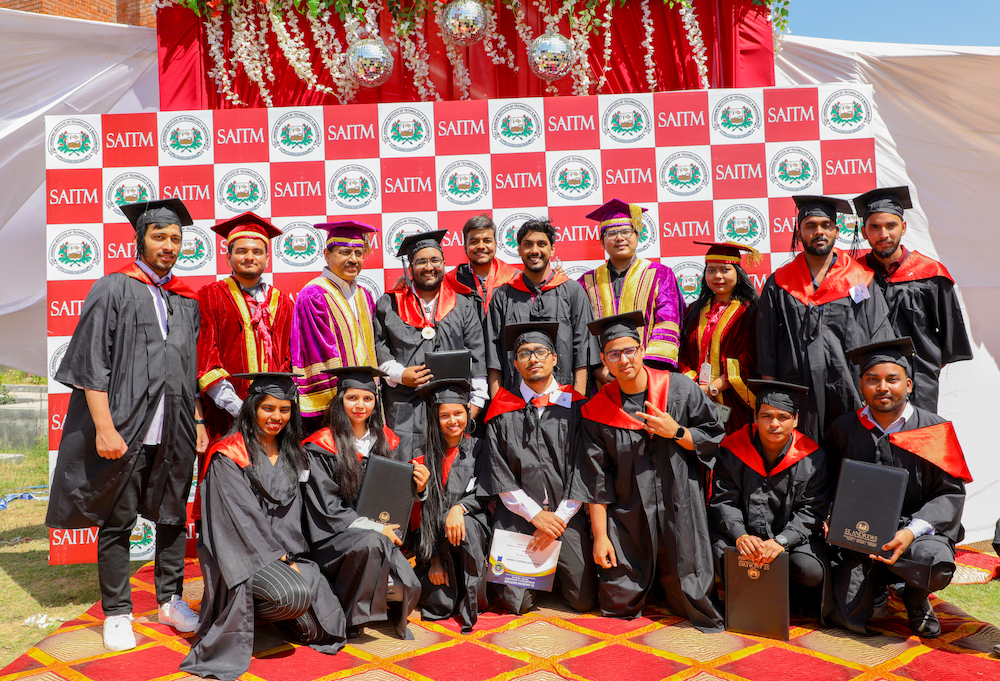
Choosing a good Computer Science Engineering (CSE) college is crucial due to several important reasons:
Quality of Education
Curriculum and Faculty: Good colleges often have well-designed curricula aligned with industry trends and experienced faculty who can impart quality education.
Practical Learning: They provide ample opportunities for hands-on learning, projects, internships, and industry collaborations, which are essential for skill development.
Placement Opportunities
Campus Placements: Reputed colleges attract top companies for campus placements, offering better job prospects and higher starting salaries for graduates.
Industry Connections: Strong industry connections facilitate internships, guest lectures, and networking opportunities, enhancing employability.
Infrastructure and Resources
Laboratories and Facilities: Access to state-of-the-art labs, libraries, and IT infrastructure supports academic and research pursuits.
Support Services: Good colleges offer student support services such as career counseling, mentorship, and clubs/societies for holistic development.
Alumni Network
Networking Opportunities: Alumni from prestigious colleges often provide valuable connections and mentorship, aiding career progression and entrepreneurship ventures.
Reputation: A strong alumni network enhances the college’s reputation and credibility in the industry.
Research and Innovation
Research Opportunities: Colleges with a focus on research and innovation foster an environment conducive to cutting-edge research projects and collaborations.
Patents and Publications: Active research output enhances academic credentials and opens avenues for higher studies and global recognition.
Personal Development
Soft Skills: Exposure to diverse cultures, leadership opportunities, and extracurricular activities in good colleges nurture soft skills crucial for professional success.
Global Exposure: Opportunities for international exchanges, conferences, and seminars broaden perspectives and enhance global competitiveness.
Long-term Career Prospects
Brand Value: Degrees from reputed colleges carry weightage in the job market, facilitating career advancement and opportunities for specialization.
Adaptability: Quality education equips graduates with adaptable skills to navigate evolving technological landscapes and career shifts.
Computer Science Engineering Curriculum

The curriculum for Computer Science Engineering (CSE) programs typically covers a wide range of foundational and specialized topics to prepare students for careers in technology and computing.
Here’s a general overview of the typical curriculum for a CSE program:
Foundation Courses
Mathematics: Calculus, Discrete Mathematics, Probability & Statistics.
Physics: Basic Physics relevant to Engineering.
Basic Sciences: Chemistry, Engineering Mechanics.
Core Computer Science Subjects
Programming: Fundamentals of Programming, Data Structures, Algorithms, Object-Oriented Programming (OOP).
Computer Organization and Architecture: CPU Design, Memory Systems, Assembly Language Programming.
Operating Systems: Concepts, Processes, Memory Management, File Systems.
Database Management Systems: Relational Databases, SQL, NoSQL.
Computer Networks: Network Architecture, Protocols (TCP/IP), Wireless Networks.
Software Engineering: Software Development Life Cycle (SDLC), Requirements Engineering, Testing.
Advanced Topics
Artificial Intelligence (AI): Automated Learning, Natural Language Processing, Computer Vision.
Cloud Computing: Virtualization, Cloud Architecture, Service Models (IaaS, PaaS, SaaS).
Cybersecurity: Network Security, Cryptography, Ethical Hacking.
Internet of Things (IoT): Sensors, Embedded Systems, IoT Applications.
Blockchain: Distributed Ledger Technology, Smart Contracts.
Electives and Specializations
Elective Courses: Students often choose electives based on their interests and career goals. These can include topics like Mobile Application Development, Web Development, Robotics, etc.
Specializations: Some colleges offer specialized tracks within CSE such as Artificial Intelligence, Cybersecurity, Data Analytics, etc.
Project Work and Internships
Capstone Project: Typically done in the final year, involving real-world problem-solving and application of skills learned.
Internships: Provide hands-on experience in industry settings, often a part of the curriculum to bridge academic learning with practical application.
Soft Skills and Professional Development
Communication Skills: Presentation Skills, Technical Writing.
Teamwork and Collaboration: Group Projects, Team-based Assignments.
Ethics and Professionalism: Ethical Practices in Computing, Legal Issues in Computing.
Industry Relevance
Industry Visits and Guest Lectures: To provide insights into industry practices and trends.
Certifications: Some programs integrate industry certifications (like Cisco CCNA, Oracle Certifications, etc.) into the curriculum.
Government Computer Science Engineering Colleges in India
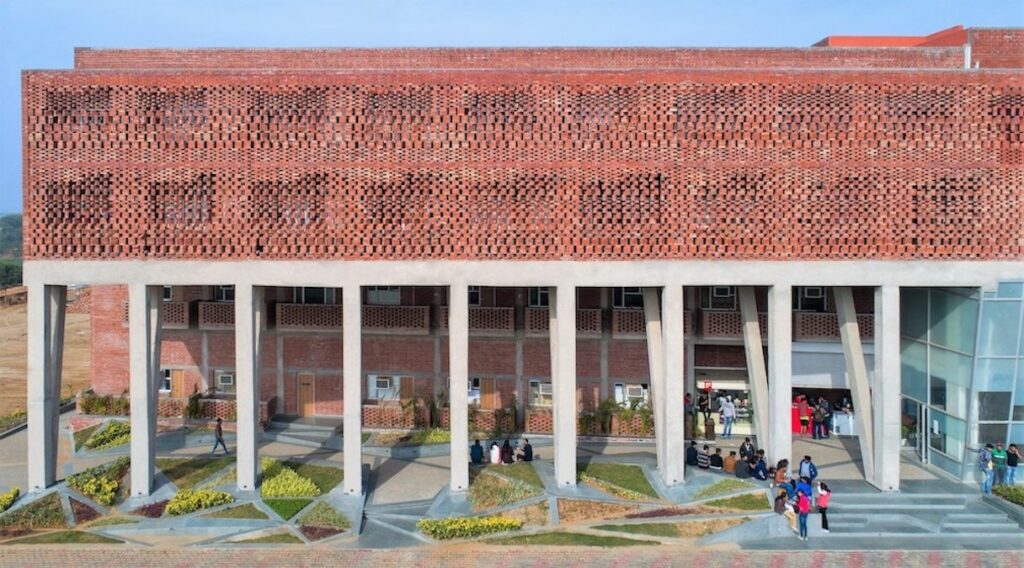
In India, there are several government-funded institutions offering Computer Science Engineering (CSE) programs known for their quality education and research opportunities.
Here are some prominent government CSE colleges in India:
Indian Institute of Technology (IITs)
National Institutes of Technology (NITs)
Other Government Engineering Colleges:
St. Andrews Institute of Technology & Management, Delhi NCR
IIITs (Indian Institutes of Information Technology)
GFTIs (Government Funded Technical Institutes)
Government Engineering Colleges affiliated with State Universities
Private Computer Science Engineering Colleges in India
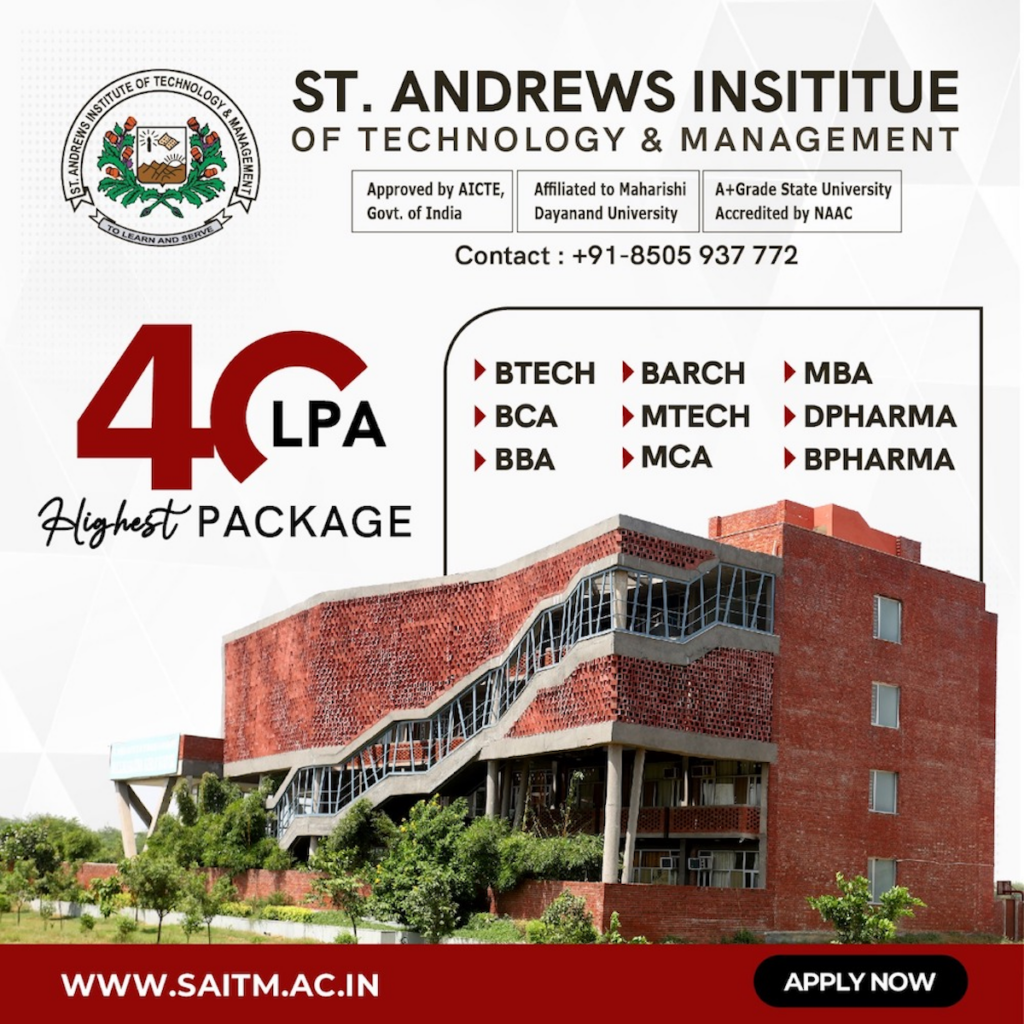
In India, there are numerous private institutions offering Computer Science Engineering (CSE) programs known for their quality education, industry connections, and infrastructure.
Here’s a list of some prominent private CSE colleges in India:
Birla Institute of Technology and Science (BITS)
Campuses: Pilani, Goa, Hyderabad
Programs: B.E. Computer Science, M.Sc. (Tech) Computer Science, Integrated M.Sc. (Tech) Computer Science
St. Andrews Institute of Technology & Management, Delhi NCR
Campuses: Delhi NCR
Programs: CST (Computer Science Technology), CSE-AI/ML (Computer Science Engineering in AI/ML), CSE-DS (Computer Science Engineering in Data Science), B.Tech CSE (Computer Science Engineering)
Vellore Institute of Technology (VIT)
Campuses: Vellore, Chennai, Bhopal, Amaravati
Programs: B.Tech Computer Science and Engineering, B.Tech Computer Science and Engg. (Specialization in Bioinformatics), B.Tech Computer Science and Engg. (Specialization in Information Security)
Thapar Institute of Engineering and Technology
Campus: Patiala
Programs: B.E. Computer Science and Engineering, B.E. Computer Engineering
Christ University
Campus: Bangalore
Programs: B.Tech Computer Science and Engineering, B.Tech Computer Science and Engineering (Artificial Intelligence and Automated Learning)
Karunya Institute of Technology and Sciences
Campus: Coimbatore
Programs: B.Tech Computer Science and Engineering
Job Roles after Computer Science Engineering
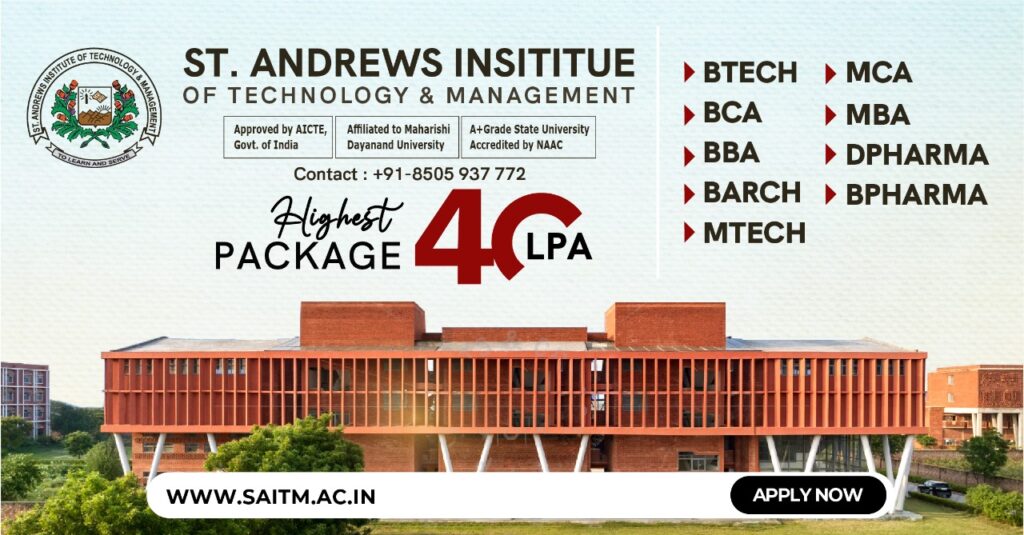
After completing a degree in Computer Science Engineering (CSE), graduates have a wide range of job roles and career paths to choose from.
Here are some common job roles and career opportunities:
Software Developer / Engineer
Roles: Develop, test, and maintain software applications and systems.
Skills: Proficiency in programming languages (like Java, Python, C++, etc.), problem-solving, software design patterns, and version control systems.
Web Developer / Engineer
Roles: Design and develop websites, web applications, computer science engineer and web services.
Skills: Knowledge of front-end technologies (HTML, CSS, JavaScript) and back-end frameworks (Node.js, Django, Ruby on Rails).
Mobile Application Developer
Roles: Design and develop mobile applications for iOS, Android, or cross-platform.
Skills: Proficiency in mobile app development frameworks (Swift, Kotlin, Flutter, React Native), user interface (UI) design, and mobile UX principles.
Data Scientist
Roles: Analyze complex data sets to extract insights and make data-driven decisions.
Skills: Knowledge of statistical analysis, automated learning algorithms, data visualization tools (like Tableau, Power BI), and programming languages (Python, R).
Machine Learning Engineer
Roles: Design and implement automated learning models and algorithms.
Skills: Expertise in automated learning frameworks (TensorFlow, PyTorch), data preprocessing, model evaluation, and deep learning techniques.
Cybersecurity Analyst
Roles: Protect computer systems and networks from cyber threats, monitor security incidents, and implement security measures.
Skills: Knowledge of cybersecurity frameworks, network protocols, ethical hacking techniques, and risk assessment.
Cloud Engineer / Architect
Roles: Design, deploy, and manage cloud infrastructure and services (like AWS, Azure, Google Cloud).
Skills: Cloud computing concepts, infrastructure as code (IaC), containerization (Docker, Kubernetes), and serverless computing.
Database Administrator
Roles: Manage and maintain databases, ensure data security, optimize database performance, and troubleshoot issues.
Skills: Proficiency in database management systems (SQL, NoSQL), database design, and query optimization.
Software Quality Assurance (QA) Engineer
Roles: Develop and execute test plans, identify and report bugs, and ensure software quality and reliability.
Skills: Testing methodologies (like manual testing, automation testing using tools like Selenium), debugging, and test-driven development (TDD).
Systems Analyst
Roles: Analyze business requirements, design information systems, and recommend technology solutions.
Skills: Understanding of business processes, system design principles, and project management.
Technical Support Engineer
Roles: Provide technical support, troubleshoot hardware and software issues, and assist end-users.
Skills: Customer service skills, knowledge of IT infrastructure, and problem-solving abilities.
IT Consultant
Roles: Advise organizations on technology solutions, IT strategy, and digital transformation initiatives.
Skills: Analytical skills, communication skills, and domain expertise in specific industries (like finance, healthcare).
Average Salary Expected by CSE Graduates
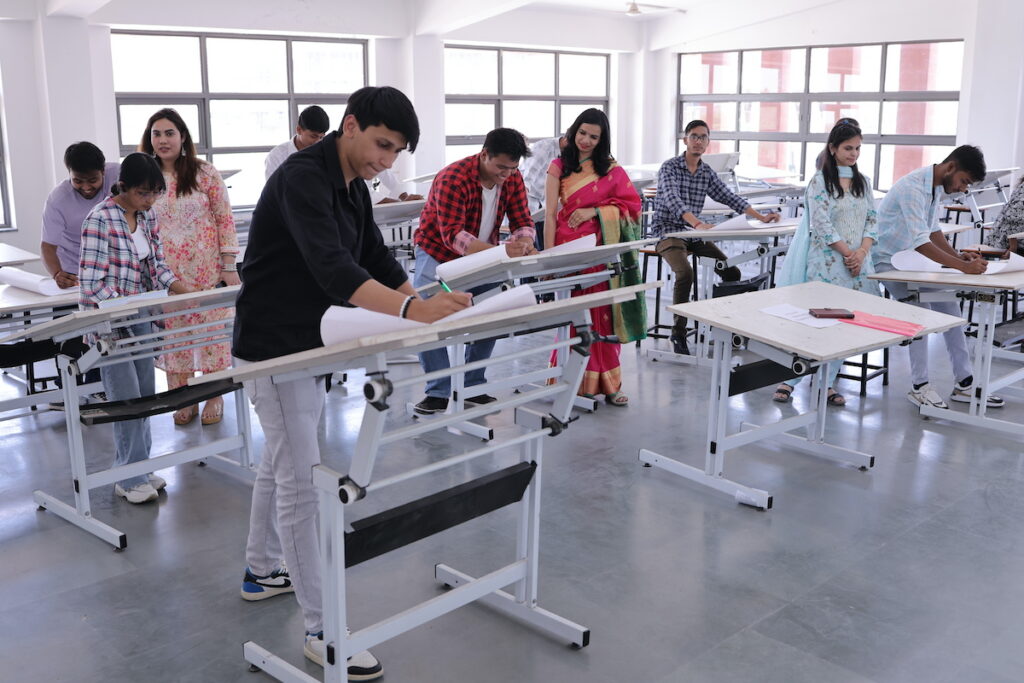
The average salary expected by Computer Science Engineering (CSE) graduates in India varies based on several factors, including the specific job role, location, company, skills, and experience level.
Here’s a general overview of the average salary ranges for CSE graduates in different entry-level positions:
Software Developer / Engineer
Average Salary: ₹3.5 lakh to ₹6 lakh per annum
Web Developer / Engineer
Average Salary: ₹3 lakh to ₹5.5 lakh per annum
Mobile Application Developer
Average Salary: ₹3 lakh to ₹5.5 lakh per annum
Data Scientist
Average Salary: ₹5 lakh to ₹10 lakh per annum
Machine Learning Engineer
Average Salary: ₹5 lakh to ₹10 lakh per annum
Cybersecurity Analyst
Average Salary: ₹4 lakh to ₹8 lakh per annum
Cloud Engineer / Architect
Average Salary: ₹4 lakh to ₹8 lakh per annum
Database Administrator
Average Salary: ₹3.5 lakh to ₹6 lakh per annum
Software Quality Assurance (QA) Engineer
Average Salary: ₹3 lakh to ₹5.5 lakh per annum
Top Recruiters for Computer Science Engineering Graduates

Computer Science Engineering (CSE) graduates are highly sought after by a wide range of companies across various industries.
Here are some of the top recruiters for CSE graduates in India:
IT Services and Consulting
Tata Consultancy Services (TCS)
Wipro
Accenture
Cognizant
HCL Technologies
Tech Mahindra
IBM India
Deloitte
Product-Based Companies
Google India
Microsoft India
Amazon India
Cisco Systems
Adobe Systems
Oracle India
Intel Corporation
Qualcomm India
NVIDIA
VMware
Startups and Emerging Companies
Flipkart
Ola
Paytm
Zomato
Swiggy
Byju’s
OYO
Freshworks
PolicyBazaar
Myntra
Financial Services and Banks
JP Morgan Chase
Goldman Sachs
Morgan Stanley
Citibank
HSBC
Axis Bank
ICICI Bank
HDFC Bank
State Bank of India (SBI)
Telecommunications and Networking
Reliance Jio
Bharti Airtel
Vodafone Idea
Ericsson India
Nokia India
Automobile and Manufacturing
Tata Motors
Mahindra & Mahindra
Maruti Suzuki
Hero MotoCorp
Bosch India
L&T Technology Services
Research and Development
Indian Space Research Organisation (ISRO)
Defence Research and Development Organisation (DRDO)
Bhabha Atomic Research Centre (BARC)
Government and Public Sector Undertakings (PSUs)
Bharat Heavy Electricals Limited (BHEL)
Oil and Natural Gas Corporation (ONGC)
National Thermal Power Corporation (NTPC)
Indian Oil Corporation Limited (IOCL)
FAQs
What are the top government colleges for CSE in India?
Some of the top government colleges include IITs (Indian Institutes of Technology) and NITs (National Institutes of Technology), known for their rigorous academic programs and research opportunities.
Which private colleges are known for CSE in India?
Private colleges like BITS Pilani, VIT Vellore, SRM Chennai, and Manipal Institute of Technology are renowned for their computer science courses, providing modern infrastructure and industry connections.
What factors should I consider while choosing a CSE college?
Consider factors such as accreditation, faculty expertise, placement records, infrastructure, industry connections, and the college’s location and environment.
How can I prepare for entrance exams to these colleges?
Focus on mastering subjects like Mathematics, Physics, and Computer Science concepts. Practice previous years’ papers and take mock tests to improve time management and problem-solving skills.
What are the typical admission processes for CSE programs?
Admission to the top Computer Science Engineering colleges in India generally requires national-level exams like JEE Main, applicable to Indian Institutes of Technology, National Institutes of Technology, and other GFTIs. State-specific exams are also considered, while private colleges may use their own entrance tests or evaluate national exam scores alongside academic records.
What career opportunities are available after completing CSE from top colleges?
Graduates from computer science colleges can pursue careers as software developers, data scientists, cybersecurity analysts, AI engineers, and more, across industries like IT, finance, healthcare, and telecommunications.
What are the average salary packages for CSE graduates from top colleges?
Salary packages can range widely based on roles and experience, with entry-level salaries typically starting from ₹3.5 lakh to ₹6 lakh per annum and increasing with experience and specialization.
Do these colleges offer opportunities for internships and industry exposure?
Yes, top CSE colleges collaborate with leading companies for internships, industrial visits, and guest lectures, providing practical exposure and enhancing employability.
What are the facilities available in these colleges for CSE students?
Colleges often have state-of-the-art labs, libraries with extensive resources, campus-wide Wi-Fi, and facilities for extracurricular activities like clubs and sports.
How can alumni networks benefit CSE students in these colleges?
Alumni networks offer valuable mentorship, job referrals, and networking opportunities, benefiting students pursuing computer science engineering with career guidance, industry insights, and professional growth.

